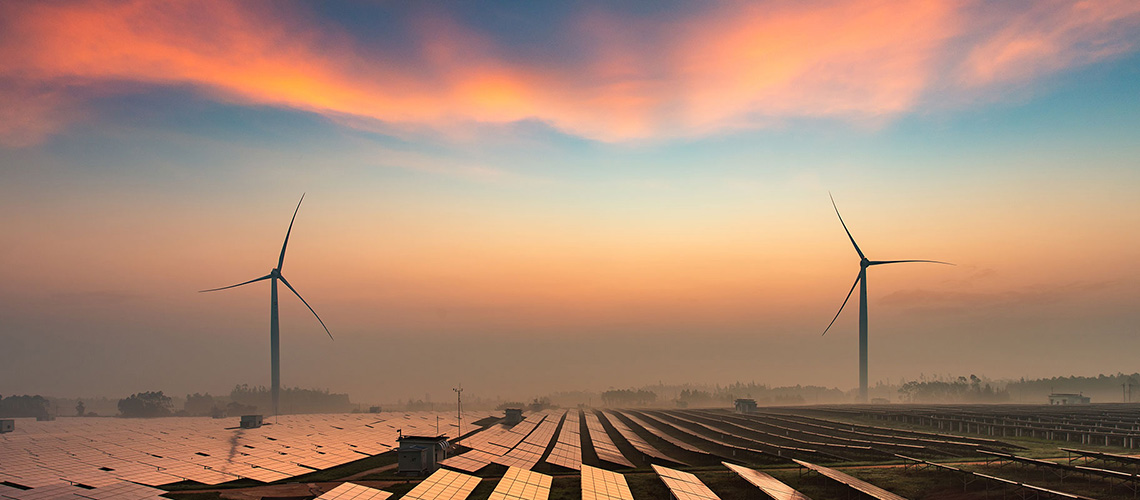
Published
- Sustainability
- Bank
- Financing
Why sustainability means good business
EKN implements new guidelines to further emphasize its commitment to sustainability and positive climate impact, while phasing out its support of fossil-based ventures.
The business community has a crucial role to play in supporting the transformation to a society capable of reaching the UN Sustainable Development Goals (SDG) and the Paris Agreement that seeks to limit the temperature rise to 1.5 degrees Celsius.
As a government agency, EKN is set the task of executing the ambitions reflected in Sweden’s public policy on climate change. Focusing on international cooperation and enlisting the support of other ECA’s as well as exporters and financial institutions is crucial to lend an impact to sustainable development globally, according to Karin Wessman, Sustainability Manager at EKN:
“We seek to act as catalyst in promoting measures where our joint leverage can have a significant impact on the climate. The aim is to increase the level of green investment, while encouraging the phasing out of projects that are not sustainable long term.”
Promoting positive climate measures
To this end, EKN has issued new guidelines that govern whether a project is eligible for support on the basis of its sustainability profile and on whether it helps fulfil the climate goals. “An export finance system that promotes positive climate measures and rejects projects with a negative profile will hopefully result in higher risk premiums on unsustainable businesses and vice versa.”
In addition to no longer provide guarantees to extraction and transportation of coal as of January 1st 2021, EKN has also ceased to issue guarantees that cover export to new oil and gas extraction projects. These decisions are underpinned by the Swedish government’s decision to stop all export finance to the exploration and extraction of fossil fuels by December 31st 2022.
Wessman notes that the Swedish government’s decition is probably among the most far-reaching in the world yet but anticipates other countries as well as financial institutions will follow suit. She underscores that saying no to a project is a powerful tool not to be taken lightly, and that it needs commitment from the business and financial community at large to have an impact.
“The notion that sustainable business isn’t just good business, but the only viable way forward is widely accepted today, as is the understanding that everyone has to contribute, including the financial sector,” says Wessman. ”Today’s lenders and financial institutions increasingly focus on sustainability because long-term sustainability risk correlates with credit risk, and because of the reputational risks of being associated with unsustainable projects. Regulatory requirements related to sustainability are also on the rise.”
Reducing the credit risk
To manage the sustainability risk involved in energy and infrastructure projects, however, is a complex task requiring expertise from many areas as well as the resources to monitor and follow up on agreed-on sustainability measures. This is particularly true in developing countries, where the investment needs are also the largest.
“By undertaking a comprehensive review of all sustainability risks involved and subject the issuance of guarantees to whether the sustainability risks are dealt with, we ensure the credit risk of the project is reduced,” says Wessman and adds: “Our goal is to facilitate integration of climate risk in credit risk assessments.”
EKN enjoys a strong cooperation with many international banks that finance projects where Swedish exporters participate: “Both during the due diligence phase and throughout the duration of the project, the financiers have a key role to play in securing the viability of the project, from a sustainability point of view as well as from other aspects. We offer a strong partnership to financial institutions that share our commitment to sustainability and firmly believe we can accomplish great things together.”

EKN’s sustainability agenda
The guarantees issued by EKN take into consideration: the environment, human rights and working conditions, combating corruption and tax evasion, and promoting sustainable lending to poor countries.
EKN’s sustainability agenda